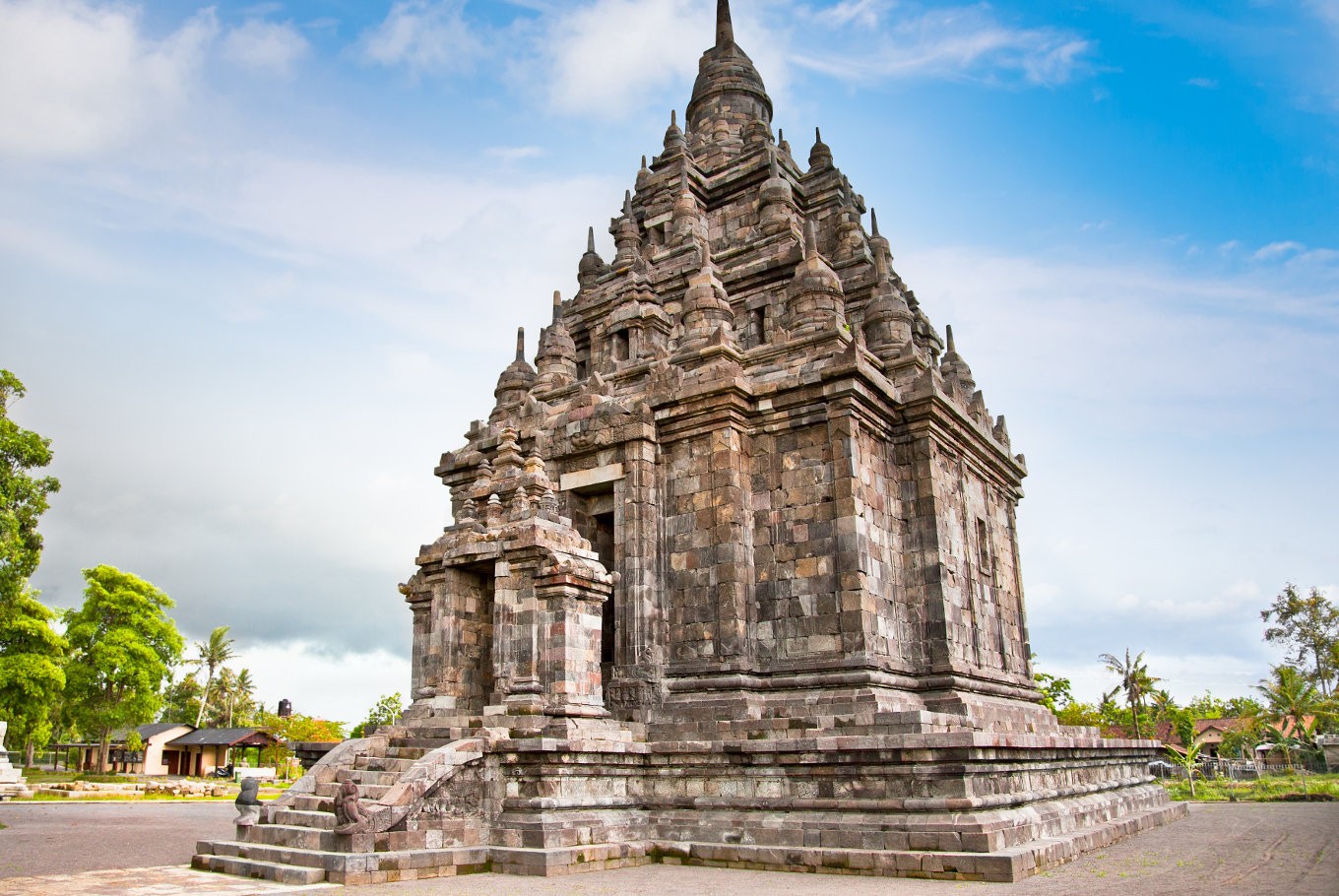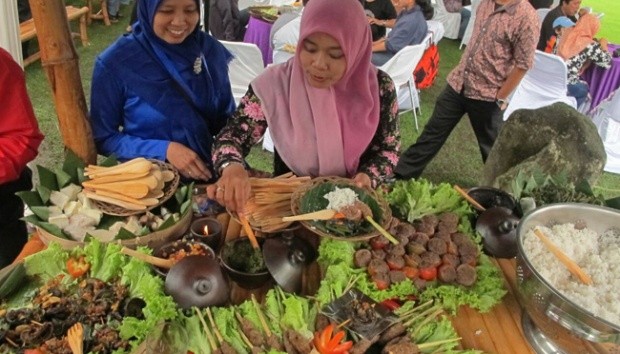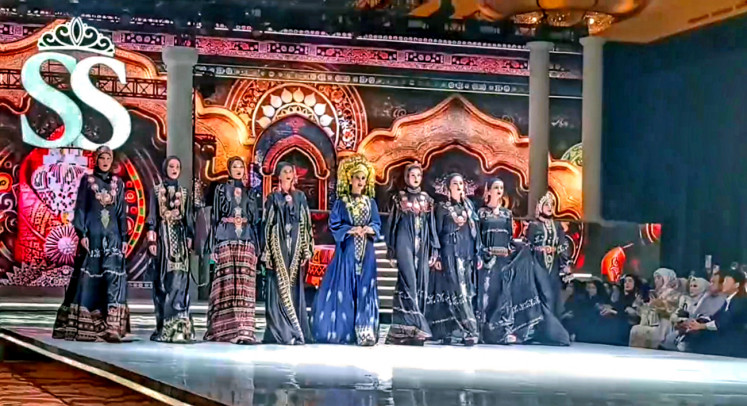Sojiwan Temple invites festival-goers to feast like a king
As part of Sojiwan Temple Culinary Festival on Tuesday, five women from Kebon Dalem Kidul village in Klaten, Central Java, learned to recreate dishes that were traditionally served during the period of the Mataram Kingdom, which dates back to the 8th to 10th century.
Change Size
 The exterior of Sojiwan Temple in Central Java. (Shutterstock/File)
The exterior of Sojiwan Temple in Central Java. (Shutterstock/File)
Ever curious about what food was served to the kings of Mataram?
As part of Sojiwan Temple Culinary Festival on Tuesday, five women from Kebon Dalem Kidul village in Klaten, Central Java, learned to recreate dishes that were traditionally served during the period of the Mataram Kingdom, which dates back to the 8th to 10th century.
Taking place near the Sojiwan Temple, the event was open to the public.
Taught by culinary practitioner Retno Wulandari, these women learned how to cook three different dishes, hadangan harang (minced buffalo meat satay), hadangan madhura (sweet buffalo meat) and dundu puyengan (circle-shaped eel with lemon basil). They were also taught how to make three different beverages, nalaka rasa (sugar cane juice), jati wangi (jasmine drink) and kinca (tamarind juice drink).
One of the participants, Ibu Suwarni, 55, admitted that this was her first time learning about this food. “The cooking process is not difficult, but the buffalo meat must be delivered from Kudus [regency],” she told tempo.co, adding that the food was planned to be served at several occasions that would take place at Sojiwan Temple. “The food is for both official [events] and for tourists who want to taste it.”
Read also: Kediri's Bah Kacung tofu: Tradition matters
Other traditional dishes presented at the festival were maneka kuluban (boiled vegetables with spices) and phalamula (boiled tubers with areh and sugar water).
“The names of the food and beverages, in the ancient Javanese language, are based on their ingredients,” said researcher Riris Purbasari from the Central Java Cultural Heritage Preservation Agency (BPCB), adding that the ingredients’ names and their cooking methods originated from a Rukam Inscription that was found in Temanggung in 1975.

In addition to buffalo meat, other ingredients prepared for the kings’ feast at the time included sea turtle meat, pregnant goat, neutered wild boar, neutered dog, taluwah fish and asih fish. These ingredients were said to be considered exclusive during the era. “Buffalo meat was chosen because it’s not yet popular here, so hopefully it will offer unique value,” Riris explained, adding that it would raise controversy if they used the traditional types of meat.
The festival is expected to encourage the people of Kebon Dalem Kidul village to make traditional dishes and engage in local culture as a potential tourism highlight. More food items are said to be showcased in the upcoming event. (kes)









